#global disarmament
Explore tagged Tumblr posts
Text
Einstein's Legacy: Unraveling the Unsustainable Web of Colonialism, Nationalism, Imperialism, and Capitalism
Albert Einstein, known for his contributions to physics, also offered profound insights into social, political, and economic issues. His views on interconnected concepts like colonialism, nationalism, imperialism, and capitalism highlight their unsustainability and interdependence. Interconnectivity Colonialism and Imperialism: Einstein saw colonialism as a manifestation of imperialism, where…
#Albert Einstein#Capitalism#Colonialism#Cosmopolitanism#disarmament#Einstein#Empiricism#ethics#evidence-based policy#global cooperation#Human Rights#Humanism#Imperialism#Militarism#moral leadership#Nationalism#opposition to Militarism#pacifism#peace#rationalism#rationality#social justice
4 notes
·
View notes
Text



we were fated to pretend
15 notes
·
View notes
Text
Slg0109 Global challenge of war
1 note
·
View note
Text
Nuclear Risks and The End of Empire with Jeffrey Sachs (Tone: 400)
Are we on the brink of nuclear disaster? Jeffrey Sachs explores the dangers of unchecked U.S. foreign policy in this must-watch episode. #NuclearWar #Diplomacy #Peace
Posted September 11th, 2024 by @thegreatsimplification Compelling Summary: In this eye-opening episode of The Great Simplification, host Nate Hagens interviews renowned economist Jeffrey Sachs on the pressing threats of nuclear war and U.S. foreign policy. Sachs highlights the dangerous trajectory of the United States’ global dominance strategy, which he argues has fueled the current tensions…

View On WordPress
#armageddon#Cold War#diplomacy#disarmament#Doomsday Clock#energy transition#foreign policy#full-spectrum dominance#geopolitical tensions#global peace#Global Security#International Relations#Jeffrey Sachs#military-industrial complex#NATO#nuclear war#peace#russia#Sustainability#treaties#U.S. dominance#Ukraine war#world government
0 notes
Text
See how the next generation envisions a world free of nuclear testing.

Experience the powerful work of CTBTO Youth Group (CYG) members for the Global Art Campaign. These parallel exhibits will be held in Vienna and New York, showcasing the winning submissions that vividly illustrate the contrast between a world with nuclear weapons tests and one without.
Vienna Exhibit
Dates: 29 August – 6 September Location: Rotunda, Vienna International Centre (VIC)
New York Exhibit
Dates: 3 – 6 September Location: Corridor Neck 1B, United Nations Headquarters
The exhibits feature a diverse range of creative expressions, including visual art, music, poetry, and performance. Free admission is available to staff of international organizations, delegates, and those with access to the VIC and UN HQ in New York.
Don't miss this opportunity to see how the next generation envisions a world free of nuclear testing.
#nuclear test#non proliferation#nuclear weapons#public exhibition#visual arts#creative expression#ctbto#CTBTO Youth Group (CYG)#global art campaign#nuclear testing#nuclear catastrophe#nuclear disarmament#youth exhibit
0 notes
Text
Remembering Hiroshima Day: Reflecting on the Past and Promoting Peace
Hiroshima Day honors the memory of those lost in the 1945 atomic bombing, reflecting on the need for global peace and nuclear disarmament to ensure such tragedies are never repeated.
Every year on August 6th, the world pauses to remember Hiroshima Day, commemorating the day in 1945 when the atomic bomb was dropped on the city of Hiroshima, Japan. This tragic event marked a turning point in history, ushering in the nuclear age and leaving an indelible impact on global consciousness. Hiroshima Day is not only a time to remember the lives lost and the devastation caused but also…
#Atomic Bomb#global peace#Hibakusha#Hiroshima Bombing#Hiroshima Day#Hiroshima Memorial#Nuclear Disarmament#Nuclear Weapons#Nuclear-Free World#Peace#Remembrance#World War II
0 notes
Text
Revisiting the Kellogg-Briand Pact: A Call for a Modern Treaty to Renounce War
The “General Treaty for Renunciation of War as an Instrument of National Policy,” commonly known as the “Kellogg-Briand Pact,” was a landmark international agreement signed on August 27, 1928. This treaty, spearheaded by U.S. Secretary of State Frank B. Kellogg and French Foreign Minister Aristide Briand, aimed to prevent war as a means of resolving disputes between nations. Despite its noble…

View On WordPress
#environmental Protection#global#international law#Kellogg-Briand#nuclear Disarmament#peace#treaty#United nations#war
0 notes
Text
Russia withdraws from comprehensive nuclear test ban treaty
youtube
#Nuclear test Ban Treaty.#Nuclear disarmament#Testing nuclear missiles#Russia#U s a#Global nuclear disarmament.#Youtube
0 notes
Text
i hate the oppenheimer movie simply for the fact its making people sympathize with fucking oppenheimer and the people who created man made horrors beyond comprehension
#some of the arguments are disgusting and extremely online#he did an imperialism and he’s bad cope and seethe#perspectives of japanese and navajo people totally absent from those posts#someone points that op is ALWAYS usamerican and gets called a bigot#hell world#we don’t need to nuance oppenheimer we need nuclear disarmament now. fuck oppenheimer focus on how this affects people globally NOW#focus on the aftermath NOW#stop writing fanfic that you think explains his motivations. it. does. not. matter. now#oppenheimer
1 note
·
View note
Text
youtube
There is a golden spike hiding in a rock face outside the village of Moffat in Scotland that marks the end of the Ordovician, denoted by the appearance of these graptolite survivors—Akidograptus ascensus and Parakidograptus acuminatus, to give them their scientific names. It's not a real golden spike but a line of darker shale and a marker of these graptolites' significance as what's called an index fossil: Wherever such a fossil is found a geologist can be sure those rocks are of a certain age.
We have found the perfect marker for the Anthropocene, or the new epoch of humans, so dubbed for Homo sapiens’s world-changing impacts. It's a rather precise start date, thanks to some unusual isotopes: July 16, 1945, at 5:29 in the predawn New Mexico desert. That's when U.S. scientists exploded the world's first atomic bomb and when the human-induced radioactive isotope clock started ticking.
The three isotopes in question are cesium 137 and plutonium 239 and 240, which will take millennia or more to decay. There are no known natural sources of cesium 137. As a result of the subsequent detonations of hundreds of such weapons around the globe, there will be plenty of these isotopes still around far into the future. Like the meteorite that helped end the Cretaceous period about 65 million years ago, and possibly the reign of the dinosaurs as well, the nuclear detonation may mark for future geologists a turning point in Earth's history.
#history#geology#geological ages#anthropocene#age of humans#atomic testing#global impacts#fallout#radioactive isotopes#prevalence of cancers#two largest nuclear arsenals involed in proxy war in ukraine#still possiblity of atomic exchange#people forget#no to nukes#nuclear disarmament is still important
0 notes
Text
Strengthening partnerships for disarmanent.

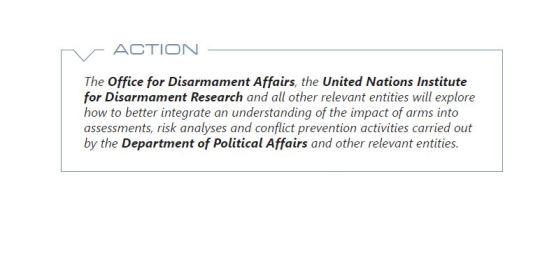


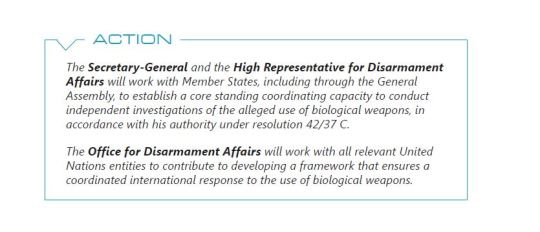
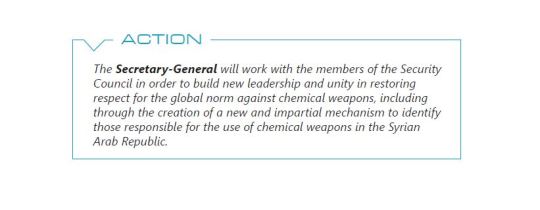




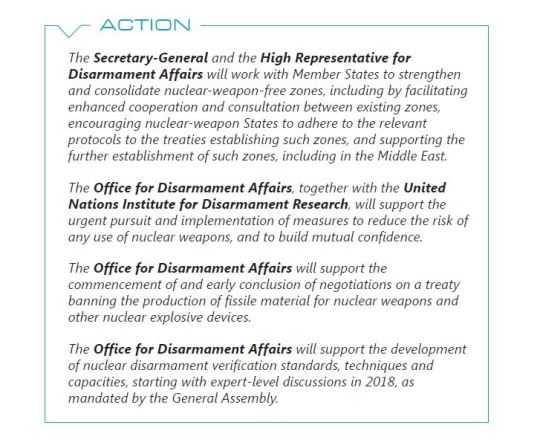

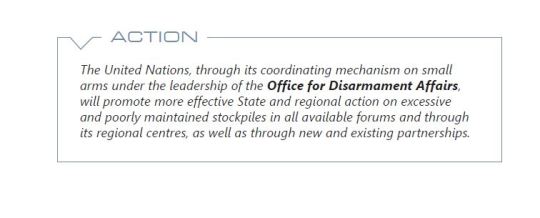

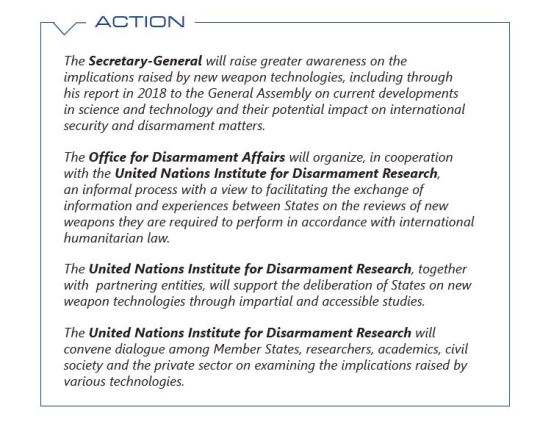

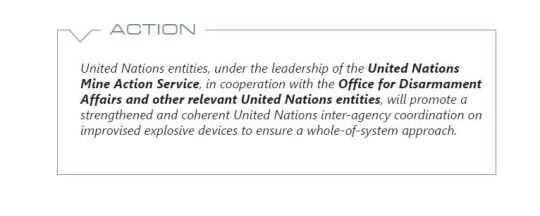


Weapons of mass destruction, in particular nuclear weapons, continue to be of primary concern, owing to their destructive power and the threat that they pose to humanity. The excessive accumulation in conventional weapons and the illicit trade in small arms and light weapons jeopardizes international peace and security and sustainable development, while the use of explosive weapons in populated areas is seriously endangering civilians. New and emerging weapon technologies, such as autonomous weapons, pose a challenge to global security and have received increased attention from the international community in recent years
#biological weapons#Arms#arms control#Disarmament#Non Proliferation#Amunition#Chemical weapon#nuclear weapons#cybersecurity services#explosive weapons#small arms#stokpiles#Weapons of mass destruction#peace and security#take action#challenge to global security
0 notes
Text
Although i certainly find universal nuclear disarmament to be a morally correct and honourable goal, it's also very clear that a reasonable part of those campaigning for it are very entrenched in anti-communist views - focusing with much strictness on the development of nuclear warheads by the DPRK, China and Russia (which isn't socialist, but nevertheless). At best they criticize the gigantic war industry of the US, but only by liberal metrics of "we should only have the necessary" and stuff like that. However, it is also clear that the development of nuclear armament - although not the main priority - should, very clearly, be something that socialist states now and in the future must consider. Even if not full blown nuclear armament - at least ICBMs and others like it. For it is not a mistake or an insanity that the DPRK, for example, has developed nuclear warheads; it knows that it is the subject of constant international harassment and it is prepared to have what is, for now, the most powerful rhetorical weapon against this. Future socialist countries should, yes, follow this! And, you see, a big number of communists mainly in the West (and to great extents elsewhere) do not see military strategy and development post-revolution as important. And this is stupid! Foolish! Russia was the subject of an inter-imperialist gangbang from all sides, and it only survived to form the Soviet Union with the development of a strong, renewed Red Army, big in bulk and in equipment. And socialist revolutions in the future will also need to have this: they'll need a Red Army, Red Navy and Red Air Force. And communists NOW should think about how this needs to be developed and need to learn strategy and need to be active within military circles (although, of course, in the imperial core the military is a much clearer peon of international capital than in the global south, so things are harder in this stance). Socialism here, now and in the future will certainly be striked with the combined forces of capital tumbling down on any form of organized proletariat. This happens to countries contrary to the imperialist USAmerican order, socialist or not: it imposed a military dictatorship in Cambodia in 1970, it couped Chile in 1973, it annihilated Grenada in 1983, it helped oust Aristide in Haiti in 2004, it destroyed Libya in 2011 - not counting many others. This means that developing a strong, truly proletarian armed force and developing means to defend it long term beyond that - ICBMs, and, of course, following the correct Korean path, even nuclear missiles - are crucial for the establishment of socialist states. And only when socialism is triumphant or on its way to triumph may these rhetorical and physical defenses of socialism be dismantled. Or only if the capitalist world surrenders all of it at the same time. However, believe me: they won't. As such, i'd say that in the 21st century, Lenin's little formula can be adapted to: Communism is Soviet power + electrification + ballistic missiles, in a gross simplification. The basis, the development and the defense.
230 notes
·
View notes
Text
largest industrial consumers of energy:
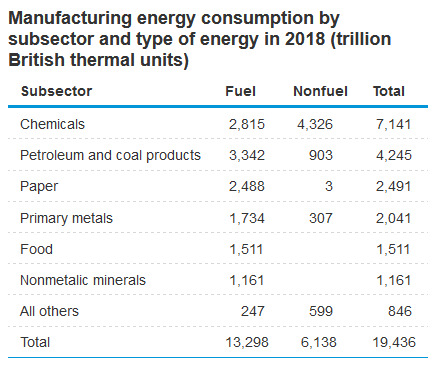
largest industrial consumers of water:

gosh, it sure seems suspicious to me that people are spending all this time online arguing about the energy and water consumption of things that are simply not represented on these lists! (AI)
finer points that are too much to ask of a tumblr audience below
google, samsung, taiwan semiconductor, intel, and facebook are among the largest companies consuming energy (globally, in contrast to the US statistics shown above). this is a piddling use of statistics because they are vastly outnumbered by the sheer amount of companies in the industries listed above -- because they have largely monopolized their industries, which is why we've imposed sanctions on computing component imports, why we geopolitically oppose one-china policy on taiwan, why we're doing wargames in the south china sea, why we're crying about the russian nuclear submarine docked in cuba, and why we pulled out of the largest nuclear disarmament project in history -- all because we have no manufacturing capability. however, if you look closely, building out two parallel manufacturing industries for the same product actually consumes more energy than simply doing a business deal with communists, but that would be bad for the optics of the great american myth
gallons per dollar output is not the same as total overall, i.e. wineries rank highly because their product is more expensive per gallon consumed than others, but statista was the best available source. if you want EPA data you have to reckon with the fact that they separate direct water withdrawal from use from the public water supply
this is FAR kinder than the first draft, where i said the reason y'all do this is because you book precisely zero paychecks over Writing Stories For Societal Change and you're upset at the prospect of computing getting passable at it because it threatens to interrupt the cashflow you already do not have and shatter the illusion that you're a helpless baby who can't do anything to improve your circumstances except Imagine Things. the term for this is "feigned innocence" and i flatly do not accept it from people who have all the capability in the world to know better
157 notes
·
View notes
Text
🧵Meet 15 Jewish Nobel Prize Winners Who Changed History🧵
The Jewish population constitutes just 0.18% of the world (15.3 million out of 8.2 billion), yet approximately 20-30% of Nobel Prize winners in fields like Physics, Chemistry, and Medicine are Jewish. This incredible fact highlights the Jewish community's historic contributions to humanity.
Let’s meet just 15 of the over 200 Jewish Nobel Prize winners.
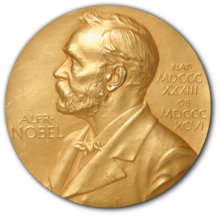
1/ Albert Einstein (1921, Physics).
Einstein was born in Germany to a secular Jewish family. His groundbreaking discovery of the photoelectric effect laid the foundation for quantum mechanics, earning him the Nobel Prize.
▪ His theory of relativity (E=mc²) reshaped our understanding of gravity and spacetime.
▪In 1933, Einstein fled Nazi Germany to the U.S., where he became a vocal advocate for civil rights and Zionism. ▪He helped inspire the Manhattan Project but later became an advocate for nuclear disarmament.

2/ Niels Bohr (1922, Physics).
Born in Denmark to a Jewish mother, Bohr revolutionized atomic physics.
▪His Bohr Model showed electrons orbit the nucleus in distinct energy levels. ▪During WWII, Bohr worked on the Manhattan Project after escaping Nazi persecution. ▪Beyond science, Bohr advocated for global cooperation and peaceful nuclear energy use.
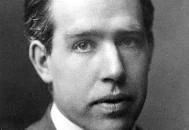
3/ Shmuel Yosef Agnon (1966, Literature).
Born in Galicia (modern-day Ukraine), Agnon immigrated to Ottoman Palestine in 1908.
▪His novels and stories delve into Jewish tradition, spirituality, and the tension between modernity and faith. ▪His acclaimed works include A Simple Story and Only Yesterday. ▪Agnon’s Nobel solidified Hebrew literature's global recognition.
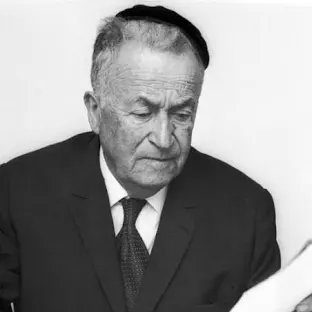
4/ Rosalyn Yalow (1977, Medicine).
Yalow, born in New York to a Jewish family, co-developed radioimmunoassay (RIA), a groundbreaking technique to measure hormones in blood.
▪Her work revolutionized the diagnosis and treatment of diseases like diabetes. ▪Despite gender biases in science at that time, she became the second woman to win the Medicine Nobel.
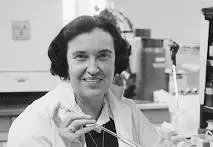
5/ Baruch Blumberg (1976, Medicine).
Blumberg, a Jewish-American physician, discovered the Hepatitis B virus and developed its vaccine.
▪His research saved millions from liver disease and cancer.
▪Blumberg also served as the first director of NASA’s Astrobiology Institute, exploring life’s origins in the universe.
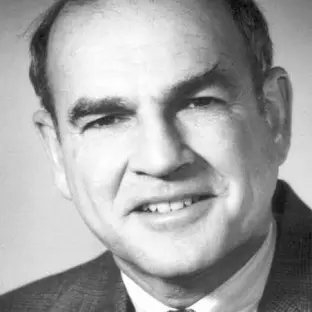
6/ Lev Landau (1962, Physics)
Born in Baku, Azerbaijan, to a Jewish family, Landau made ground-breaking contributions to condensed matter physics and quantum mechanics.
▪His groundbreaking work on superfluidity explained the behavior of liquid helium at extremely low temperatures. ▪Landau also developed the "Landau-Lifshitz equations," foundational in describing ferromagnetism. ▪Known as a genius in theoretical physics, his "Landau Levels" remain crucial in quantum mechanics.

7/ Richard Feynman (1965, Physics).
Feynman, born to Jewish parents in New York, shared the Nobel for his work in quantum electrodynamics (QED).
▪Known for his brilliance and humor, he revolutionized particle physics with "Feynman diagrams." ▪He contributed to the Manhattan Project and inspired countless scientists through his lectures and books like Surely You’re Joking, Mr. Feynman!
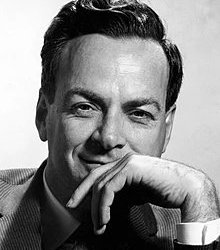
8/ Elie Wiesel (1986, Literature).
A Romanian-born Holocaust survivor, Wiesel wrote Night, a searing memoir of his Auschwitz experience.
▪He dedicated his life to Holocaust education and combating hatred. ▪Wiesel’s Nobel recognized his literary contributions, ensuring the horrors of the Holocaust were never forgotten.
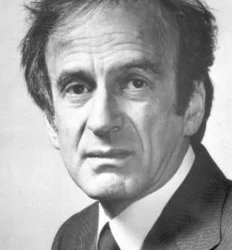
9/ Herbert Hauptman (1985, Chemistry).
Hauptman, a Jewish-American mathematician, co-developed direct methods for solving crystal structures, revolutionizing crystallography.
▪His work paved the way for advances in drug design, enabling scientists to develop life-saving medications. ▪Hauptman’s methods remain foundational in understanding molecular structures in biology and medicine.
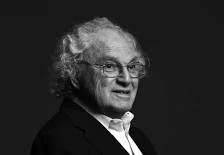
10/ Robert Aumann - Yisrael Aumann. (2005, Economics).
An Israeli-American mathematician, Aumann revolutionized game theory, analyzing strategic interactions between rational decision-makers.
▪His work, particularly on "repeated games," has applications in economics, military strategy, and even evolutionary biology. ▪Aumann is an observant Orthodox Jew and has been a vocal advocate for Israel's security and has connected his mathematical insights with the Talmudic concept of fairness and justice. He often reflects on his Jewish heritage in his work and public speeches.
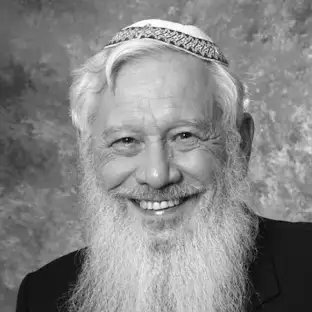
11/ Aaron Ciechanover (2004, Chemistry).
Ciechanover, born in Haifa, Israel, discovered the ubiquitin-mediated protein degradation system.
▪This mechanism explains how cells identify and destroy faulty or damaged proteins, which is essential for maintaining health. ▪His findings have significant implications for treating diseases like cancer, Alzheimer's, and Parkinson's.
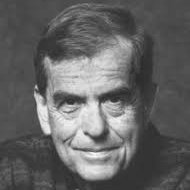
12/ Avram Hershko (2004, Chemistry).
Hershko, born in Hungary and a Holocaust survivor, worked alongside Ciechanover on the ubiquitin system.
▪His research showed how proteins are tagged for destruction, which is vital for cellular health. ▪Hershko’s journey from surviving the Holocaust to becoming a Nobel laureate highlights the resilience and brilliance of Jewish scientists.
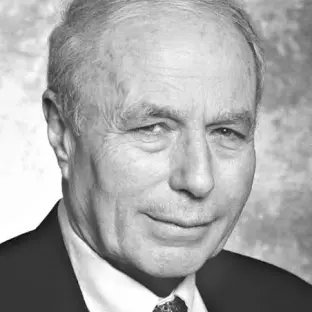
13/ Daniel Kahneman (2002, Economics).
Kahneman, born in Tel Aviv, is a psychologist whose work transformed economics.
▪He co-authored Thinking, Fast and Slow, exploring how cognitive biases affect decision-making. ▪His prospect theory explained how people assess risk, challenging classical economic theories of rationality.
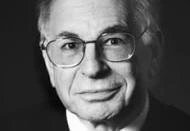
14/ Ada Yonath (2009, Chemistry).
An Israeli crystallographer, Yonath is celebrated for uncovering the 3D structure of ribosomes, the cell's protein factories.
▪Her work advanced the development of antibiotics targeting bacterial ribosomes, combating antibiotic resistance. ▪Yonath is the first Israeli woman to win the Nobel Prize in Chemistry.
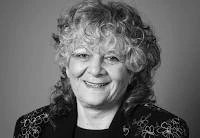
15/ Saul Perlmutter (2011, Physics).
An astrophysicist from Berkeley, Perlmutter co-discovered that the universe’s expansion is accelerating due to "dark energy."
▪His work confirmed the existence of this mysterious force, which makes up about 68% of the universe. ▪Perlmutter’s groundbreaking discovery led to a wave of new theories and observations in cosmology, changing how we understand the cosmos and our place within it.
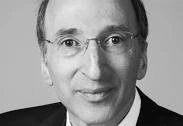
Conclusion.
Of the 976 individual winners of the Nobel Prize and the Nobel Memorial Prize in Economic Sciences from 1901 through 2024, at least 217 have been Jews or people with at least one Jewish parent, an astonishing 22% of all recipients.
This amazing achievement underlines the huge contribution that the Jewish community has made to world progress in a wide range of areas, from science and medicine to literature and economics.
With only 0.2% of the world's population, Jewish people have continued to shape and inspire the world with intellectual perseverance and innovation, thus leaving a lasting legacy for future generations.
Correction *Jewish population is at 15.8 million.
Correction: Wiesel won for peace.
@AP_from_NY
55 notes
·
View notes
Text

Consequences of violated security assurances.
30 years ago, on 5 December 1994, Ukraine signed the Budapest Memorandum, agreeing to give up its nuclear arsenal, the third-largest in the world at the time. In exchange, the deal was supposed to provide Ukraine with security guarantees. The Budapest Memorandum declared respect for Ukraine's independence, sovereignty, and existing borders. It promised that no weapon of these countries would ever be used against Ukraine except for self-defense. However, since 2014, Russia — one of the Memorandum's signatories — has been brutally violating the Memorandum and numerous other agreements and international laws. The Budapest Memorandum failed to prevent Russia from launching an invasion of Ukraine, which led to thousands of Ukrainians being killed, millions displaced, whole towns destroyed and others subjected to constant missile and drone attacks. Moreover, the broken security assurances set a dangerous precedent: Ukraine had given up its nuclear weapons in good faith, and Russia's war not only undermined Ukraine's security but also damaged global trust in nuclear disarmament. Recognizing past mistakes is essential to ensuring history doesn't repeat itself. Today, Ukraine must be provided with clear, legally binding security guarantees – and full membership in NATO is the way to move forward. —Ukraine.ua
35 notes
·
View notes
Text
Seeing Western Activists praise the recent ICJ West Bank opinion is just watching another exercise in hypocrisy and willful ignorance.
This is the same court that said they found no evidence of genocide and that Israel should do everything in its power to prevent the war from becoming one.
The response from Western Activists was to keep calling it a genocide as they had been doing since October 8th before Israel even started its military response.
This is the same court that instructed Hamas to return the hostages, which they never did.
The response from Western Activists was to ignore this ruling and Hamas's lack of action completely.
This recent opinion states that Israel must exit the West Bank and give the land back to the 1967 borders.
But then it goes back to Jordan right?
Because all of the territory seized in 1967 belonged to other Arab countries and if its going back to pre-67 borders it defaults back to them, right?
Or are we finally establishing Palestine with its own government to be recognized by the international community, and therefore be welcome and beholden to all the rules, laws, and norms?
Is that new government in charge of Gaza as well, and thus has a responsibility for 10/7 and the hostages?
Does that new government have a responsibility to handle Hamas and all the other terrorist groups?
Will this become another Lebanon where the UN says it will disarm terrorist groups within the country and enforce the disarmament, but does absolutely nothing and leaves it to Israel to be in a continued armed conflict with said groups continuously while the international community wring their hands and cry over the Jews fighting back?
(Because, let's be honest, it doesn't matter that there are non-Jewish Israelis. It only matters that the Jews are "uppity" in the global scheme of things.)
Every time an ICJ opinion comes out regarding Israel and Palestine I have to ask "Okay, what next?". Because I've never seen the next steps actually come to fruition or a detailed description of what that actually means. Maybe someone will actually put a plan of action forward and what it entails, but until then I'm just going to sit back and watch the moral grandstanding continue.
(I'm not even going to touch upon Nawaf Salam, the current president of the ICJ, and his history of rampant antisemitism that informs his decisions, but its something to keep in mind.)
#jumblr#antisemitism#ICJ#ICJ Opinion#ICJ Hypocrisy#UN#UN Hypocrisy#Activist Hypocrisy#Western Activist Hypocrisy#i/p#israel#palestine#The ICJ has made rulings regarding Hamas and you conveniently ignore those to focus on the Israel ones
65 notes
·
View notes